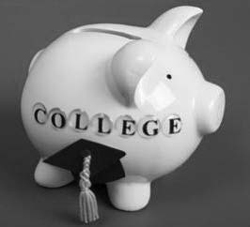How to Get Around Major College Expenses
 If there is one thing that every student knows, it is that college is expensive, and prices only continue to go up. Reducing spending can be difficult, but it is an effective way of saving money.
If there is one thing that every student knows, it is that college is expensive, and prices only continue to go up. Reducing spending can be difficult, but it is an effective way of saving money.
One of the major college expenses is the cost of books. According to yourcreditadvisor.com, the best way to save money on books is to start by buying used books. Students can also take advantage of websites such as amazon.com in order to find reasonably priced text books. After the semester, students are encouraged to sell their books back.
Credit card debt can often start early if a student is not careful, so students are encouraged to stay away from credit card usage unless it is an emergency. If a credit card is used, students should get in the habit of paying bills on time to avoid the late fees and pay more than the minimum payment fee.
College students do not realize how much they spend on food outside of their meal plans. Weekly take out alone can add up to a lot of money every month. According to collegescholarships.org, a student who buys a daily cup of coffee may end up spending over $250 per semester.
“College students can save money by not getting take-out because delivery and take out start to add up quickly,” said Elizabeth Regan, junior accounting major. “Don’t stop by Einstein’s bagels every morning even when your class is right next door, and cut down on student center lunch dates.”
Regan also encourages students to utilize their meal plans rather than spend money elsewhere.
Entertainment can also be a major expense. Howstuffworks.com encourages students to get creative with things they can do in their free time. If students choose to look to outside sources such as movie theaters, cafes, and art centers for entertainment, they should ask for discounts. Otherwise, there are plenty of activities students can engage in without spending any money. Planning a picnic, going bike riding, or taking a walk are all activities that do not cost any money.
Living in an off-campus apartment and no longer having a meal plan forces students to budget for food, gas, and entertainment. Regan cites planning as the key to making it through college on a budget.
“I make a list of groceries that I want, and I stick to that list when I go to the store. I walk when I can instead of wasting gas on driving, and I buy my textbooks online for a quarter of what I would have paid buying the books from the bookstore. I have a subscription to Netflix so I don’t have to waste money on renting movies, and I plan how much money I have allotted for the week and do not stray,” Regan added.
Finding a job is another way for students who can manage their time well to earn extra money that they can save. Opening a savings and checking account and starting an emergency fund are all ways that students can save money while establishing good credit. Howstuffworks.com cites holding onto all receipts as a way to track spending habits.
“Some financial mistakes college students make are not budgeting their money, not saving, and not investing,” said John Buzza, Business professor. “In order to set up a budget, students should list their total income, be diligent about listing all the expenses you have, subtract the income from the expenses, and ma ke sure you end up with something leftover. If not, then cut expenses.”
Buzza advises first-year students to “only do what you can afford to do and spend what you have and not what you don’t have.”
“We live in a world of ‘if I want it I’ll buy it’, there is nothing worse than that sort of mentality,” Buzza added. “Be frugal in your spending because you never know what tomorrow might bring.”
PHOTO COURTESY of howstuffworks.com

